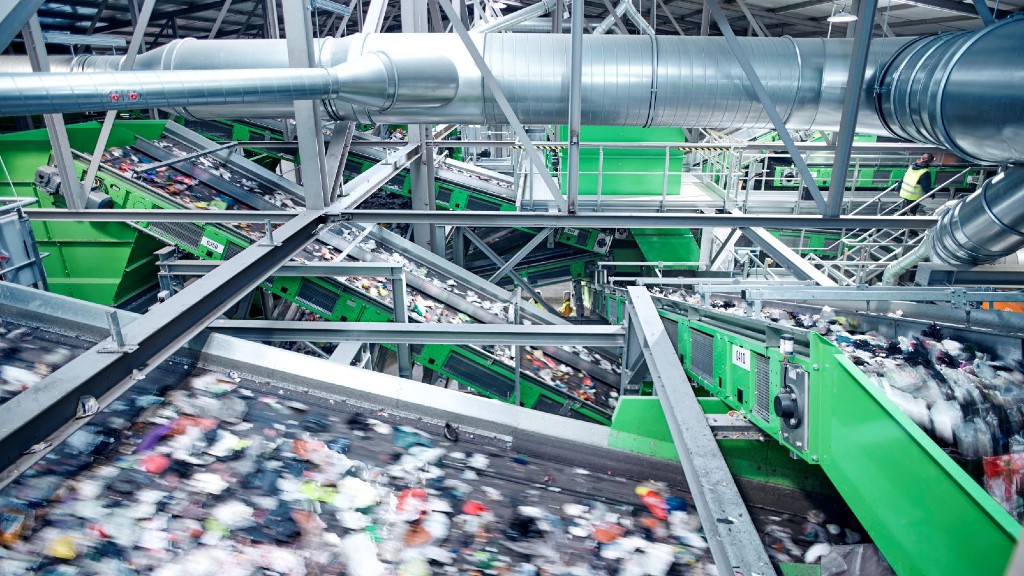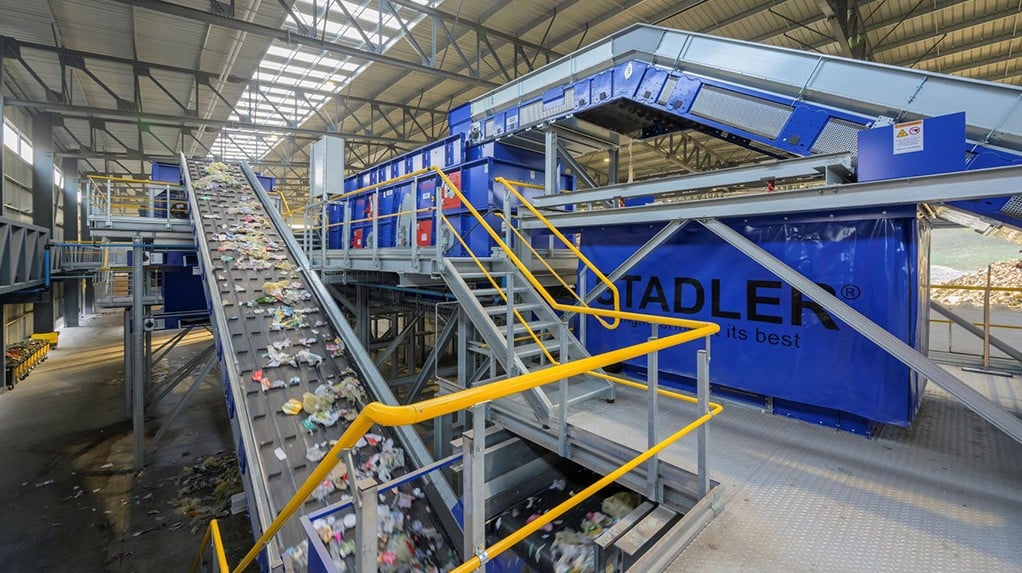
STADLER and KRONES have collaborated in the design and installation of a new sorting and washing plant for Kunststoff Recycling Grünstadt GmbH (KRG), a German recycling company serving the plastics processing industry. The facility for processing post-consumer HDPE and polypropylene (PP) packaging waste helps close the plastics circular economy loop with its output of recyclates that can be used again in the same packaging applications – including those requiring food-grade material. The plant was designed to produce approximately 30,000 tonnes of annual recyclates that can be returned to the manufacturing cycle. In addition, the process itself delivers environmental benefits through a reduction in material loss and water consumption, saving up to 36,100 tonnes of CO2 equivalents per year by processing around 38,000 tonnes of plastic waste.
Sorting plastics by colour and helping the circular economy loop
With its new plant, KRG aims to produce recyclates capable of meeting the demands of branded goods companies and the Fast Moving Consumer Goods (FMCG) sector. This would not be possible by following the common practice in HDPE and PP post-consumer packaging recycling, which produces low-quality, dark colour recyclates that can only be used in lower applications.
To achieve the desired result, the pre-sorted materials coming from light packaging plants are first processed through the sorting line designed and installed by STADLER. With a capacity of approximately 10 tonnes per hour, the line operates in two different modes depending on the material being fed – one for PP materials and another for HDPE. The input materials are screened to eliminate fines, metals are separated using an over belt magnet and eddy current, and light film is extracted by an air sorter.
Seven near-infrared (NIR) sorters separate the remaining material into six product fractions separated by colour. Part of the output materials is fed immediately into two KRONES lines, located in the same hall, while the rest is baled and stored for later processing.
In the KRONES lines, each with a capacity of two tonnes per hour, the pre-sorted material is ground into flakes and pre-rinsed before being processed in the company's patented hot-washing system. Final rinsing and sorting according to colour and polymer complete the process to produce perfectly clean flakes required for recycling in their original packaging applications.
"This plant makes a big step in advanced quality of the recycled material, which can go to challenging applications where reduced odours and even food grade qualities need to be achieved. HDPE and PP packaging can be recycled for the same application again, so that, for example, an HDPE shampoo bottle or PP margarine pot will have a second life as a bottle, pot, or lid. This was only done for PET bottles until now," explains Mr. Michael Auburger, product manager of recycling solutions at KRONES.
A tailored design where close collaboration was key
STADLER and KRONES have developed a successful collaborative relationship over the years in a number of joint projects which have led to their joining forces in a partnership.
This partnership was valuable on this project where the STADLER sorting line needs to work in conjunction with the KRONES line.
"Since the two lines are linked to each other, there are interfaces in their controls. For our colleagues from the control engineering department, it was therefore a complex task to coordinate the signal exchange between the lines regarding safety standards and operating modes. Through targeted meetings of the specialists and project managers of both companies, this challenge was also successfully mastered," explains Pascal Locher, a project manager at STADLER.



